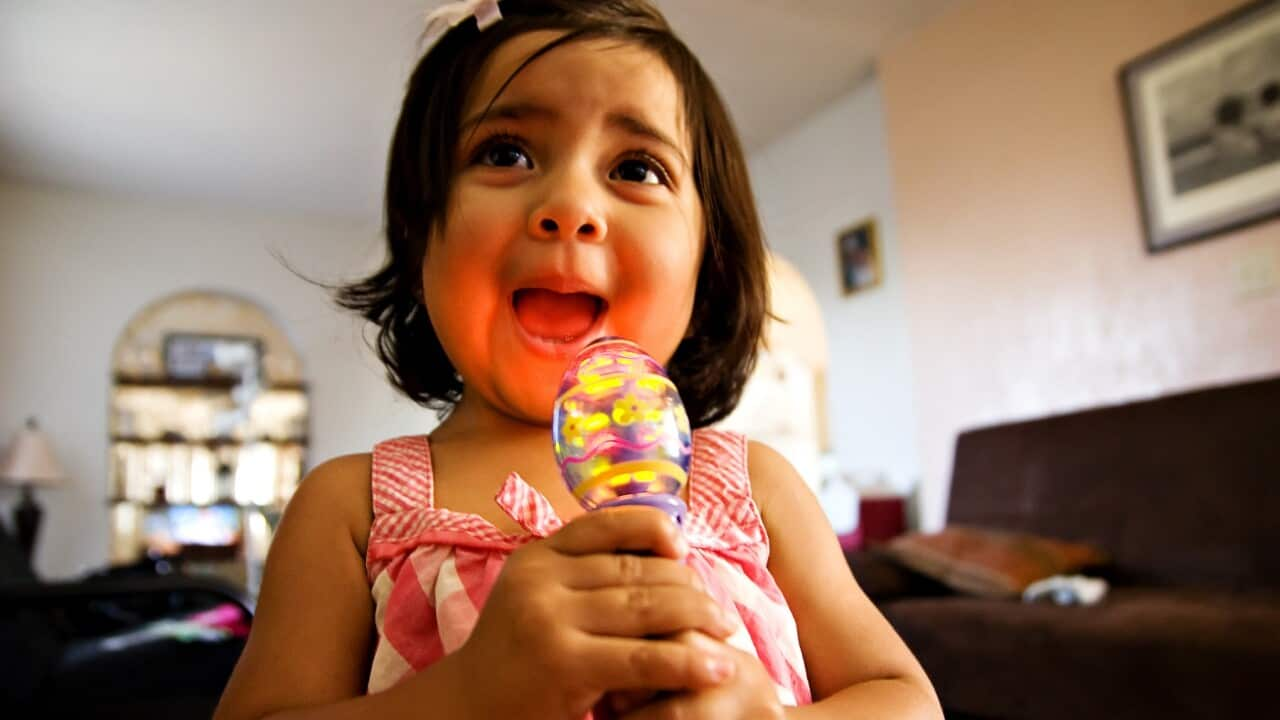Highlights
- A common misbelief is that bilingual kids are 'late talking'
- SBS Punjabi chats to speech pathologist Jasleen Kaur, who herself speaks three languages
- Ms Kaur debunks the myths and gives tips on creating a language-rich home environment
Kirandeep Kaur, a mother from Melbourne’s northern suburbs, has just fixed an appointment with a speech therapist.
"My first kid started talking very early, but the second one is late,” she says.
Kirandeep's younger son is four years old and struggles to communicate at a level that his mother expects from a kid of this age.
“My elder daughter started going to childcare very early, and she has been speaking very clearly from the age of three, but my son is not even able to convey the simplest of talk.
“Normally, he avoids talking, but if he speaks, he talks in a gibberish language made up of English and Punjabi,” she says.
Kirandeep explains that her daughter was introduced only to the English language, but that she wanted to raise her son bilingually.
“I started using Punjabi with my son from the time he was born,” she adds.
Her concern now, she says, is that introducing her son to two languages could be delaying his overall speech development. SBS Punjabi reached out to Jasleen Kaur, a Shepparton-based speech therapist who works in paediatrics, to clear the confusion.
SBS Punjabi reached out to Jasleen Kaur, a Shepparton-based speech therapist who works in paediatrics, to clear the confusion.

Children learn language and talk at different rates. Source: Getty
Ms Kaur says that acquiring two languages may cause what looks like a delay, but that's not the case.
"Actually, the kid is processing two or more language systems, and their vocabulary is getting more affluent than those who speak one language," she says.
Ms Kaur believes in the power of play in helping kids to develop a language and work on their social skills.
I advise playing with kids by going at their level rather than pressurising them to speak
“We as parents ask so many questions to our kids and put a lot of pressure to make them speak. Rather than questions, there should be a lot of play and comments," she added. She offers some tips for creating a language-rich environment at home.
She offers some tips for creating a language-rich environment at home.

Shepparton based paediatric speech pathologist, Jasleen Kaur. Source: Supplied by Ms Kaur.
“Talk about the activities that your kid is interested in, and most importantly, spend time with them to develop their language skills.
“Use consistent or similar words every day,” she says.
Does bilingualism cause language delay?
Ms Kaur says it’s the most common question amongst many bilingual parents.
“People grow up speaking two or more languages worldwide, and it doesn’t affect language delay.
"Rather, learning multiple languages can have many cognitive advantages.
Ms Kaur who herself speaks three languages, says, “it’s important to use what language we use at home.”
“Problem is with kids who don’t even use one language.
According to her, early intervention is very important and it can yield very promising outcomes.
“If a kid is not making eye contact or there are other red flags, then you must consult a speech pathologist for advice,” she warns.
She urges the Australian Indian community not to get caught up in social stigmas and taboos surrounding a child hitting their developmental milestones, as there are many intervention services available in Australia.
Disclaimer: This article's content and audio are not intended to be a substitute for professional medical advice, diagnosis, or treatment. Always seek the advice of your physician or other qualified health providers with any questions you may have regarding speech delay.
Click on the player at the top of the page to listen to the full interview in Punjabi.







